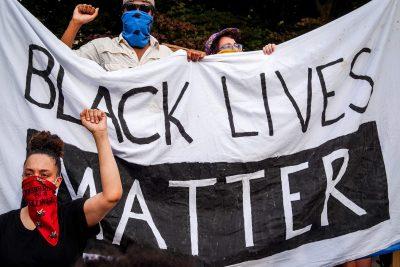
In response to global protests surrounding police brutality and racism, Boston University will hold a day-long event on June 24 dedicated to discussing such issues.
President Robert Brown announced the “Day of Collective Engagement: Racism and Antiracism, Our Realities and Our Roles” in an email to the BU community Tuesday.
“As a community of individuals committed to the attainment of knowledge and pursuit of the truth,” Brown wrote, “we believe it is the responsibility of the entire University community to listen, learn, think critically about, and collectively reflect upon these issues deliberately and with the seriousness they deserve.”
All classes, meetings and events previously scheduled for June 24 will be rescheduled so that all students and faculty can participate, according to the email.
Crystal Williams, associate provost for diversity and inclusion, wrote in an email that some goals for the day are to collectively learn about and reflect on racism’s impact on society as well as to help guide individuals on how they might effectively be anti-racist.
Speakers will include Brown, Provost Jean Morrison and BU Center for Antiracist Research founder Ibram X. Kendi, Williams wrote.
The day will feature two sessions open to anyone in the BU community, 12 panels, moderated lunchtime discussions and day-end debriefs.
The debriefing sessions, according to Williams, will center around three focus questions: what participants were challenged by; antiracist practices they learned and can adopt; and opportunities they see for themselves and the community.
BU Spokesperson Colin Riley said the University has historically fostered an inclusive community.
“The legacy of Boston University since its founding is to provide opportunity to all, regardless of race, religion, ethnicity, gender,” Riley said. “This period of time we’re in now certainly has brought it to the fore.”
It’s important for BU to have conversations about race, Riley added, because race-related issues are especially stark in the school’s surrounding location.
“We’re part of the city, Boston,” Riley said. “It’s an important discussion across the country but particularly in urban areas where you see great inequity.”
Stephanie Tavares, president of UMOJA: The Black Student Union, said the event is “a good start.”
“It’s what the University needs,” Tavares said. “It needs from the top-down level for them to analyze what’s happening on campus, if they’re also contributing to a racist environment.”
Tavares said she hopes BU puts specific policies in place to deal with racism.
“If, say, a professor sees a student engaging in maybe a racist behavior or causing a microaggression or if somebody says that a professor does it,” Tavares said, “that there is a way to deal with that issue.”























































































































